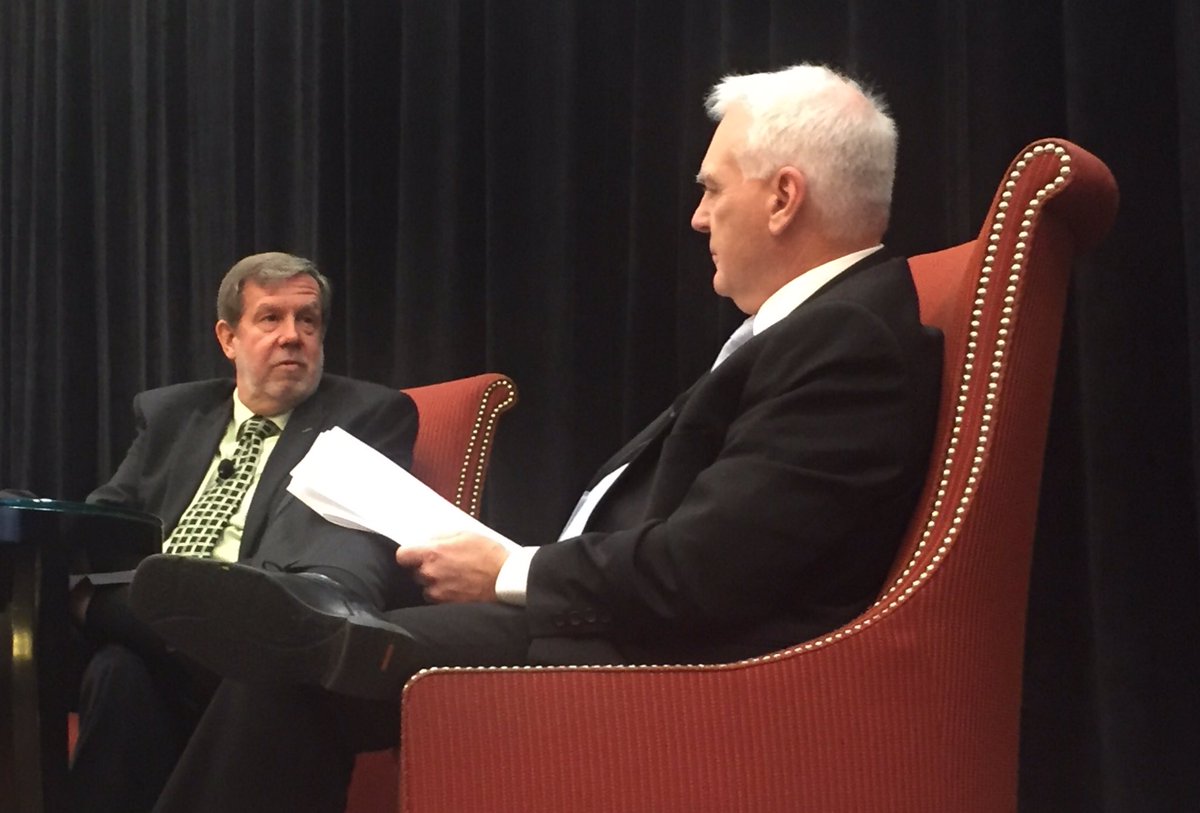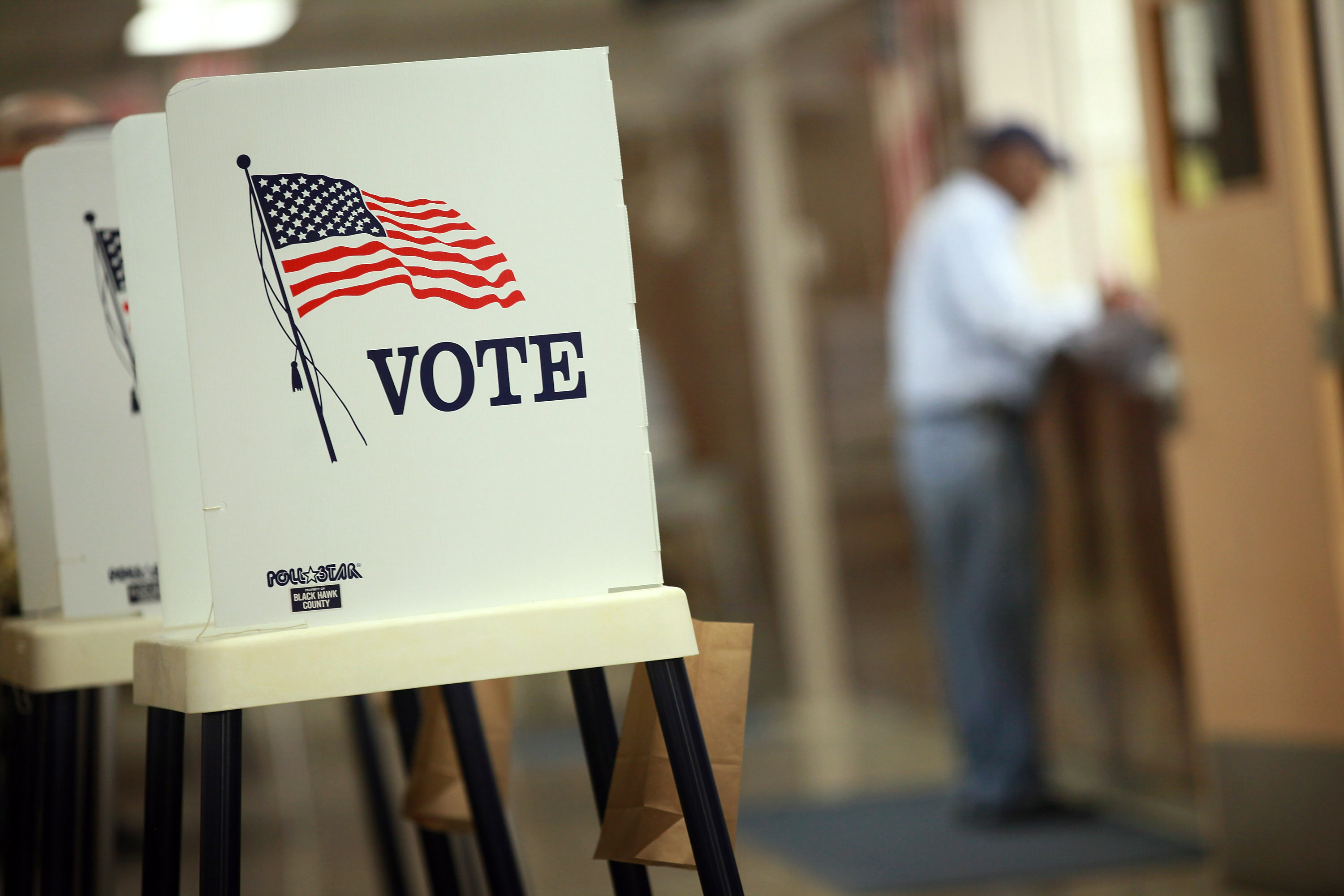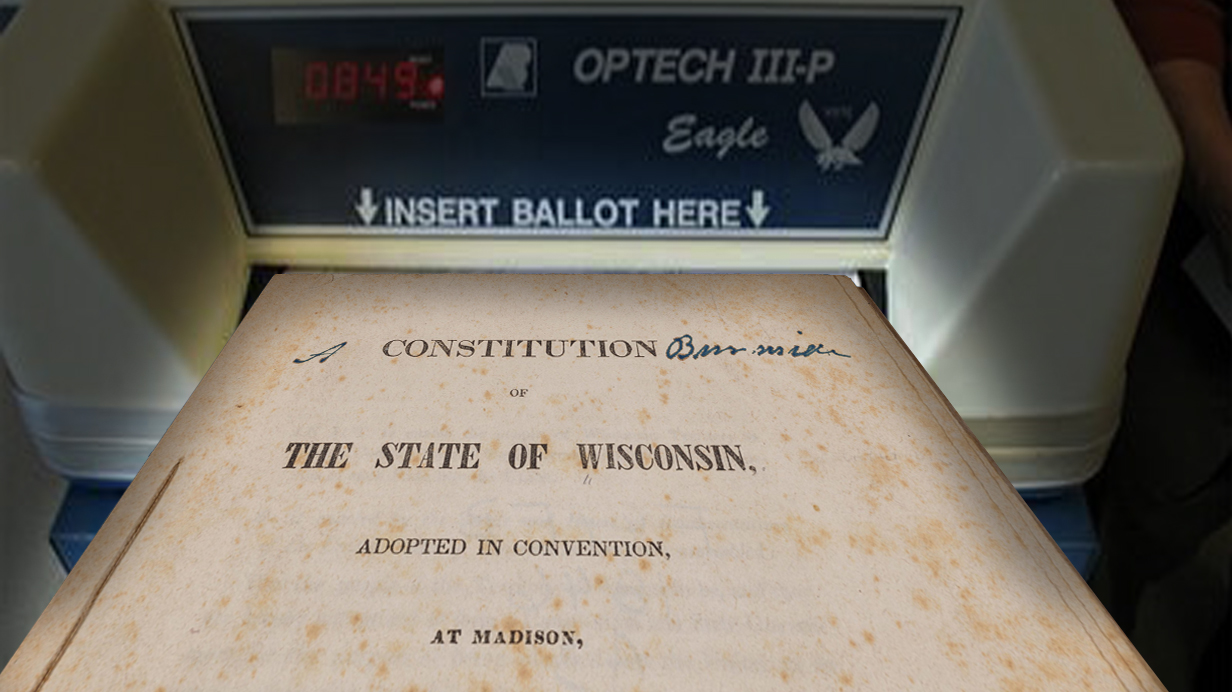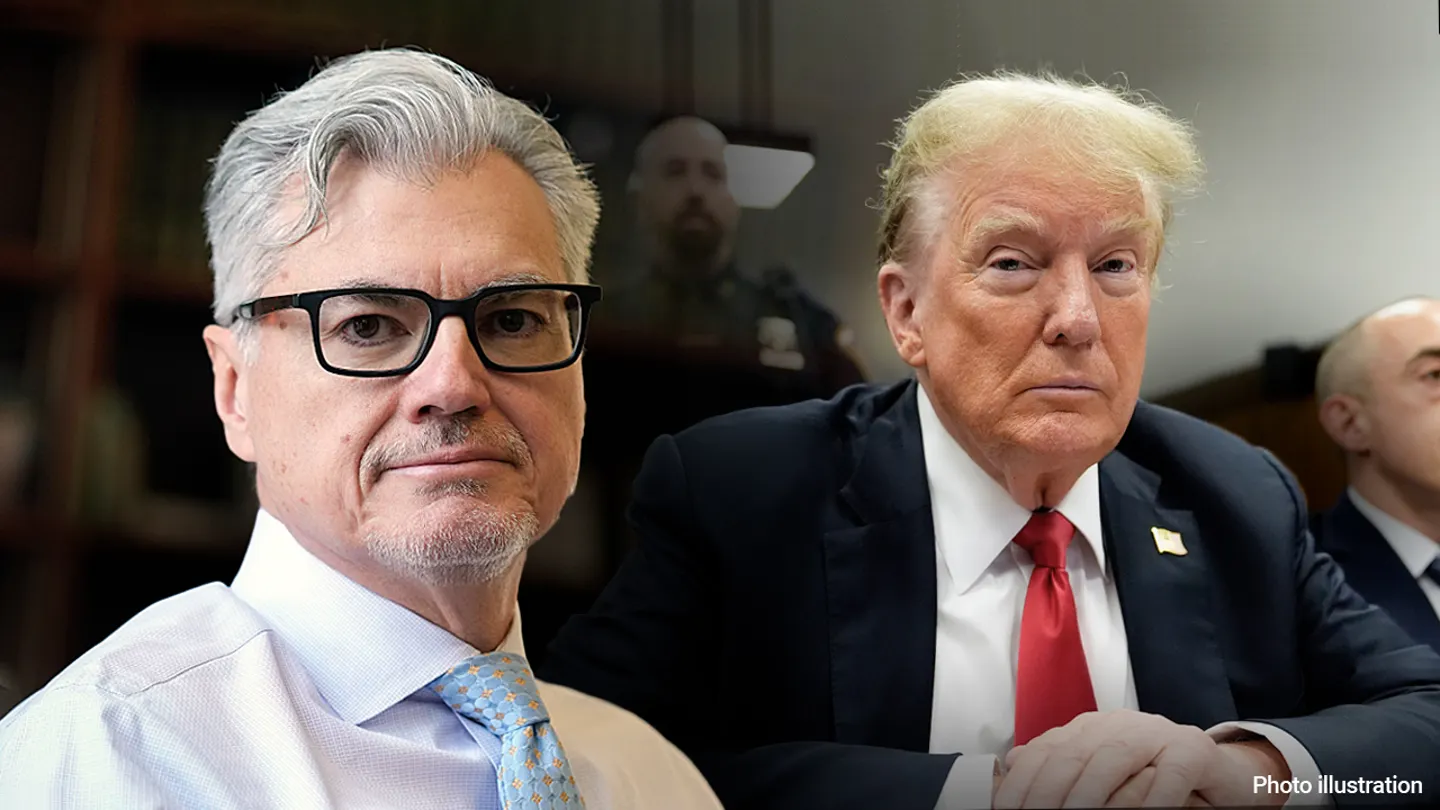
MacIver News Service | Oct. 3, 2017
By M.D. Kittle
[Madison, Wis…] In late July, MacIver News Service broke the story that former Wisconsin speech cop Kevin Kennedy appears to have broken the law in publicly sharing court-sealed information from the infamous John Doe investigation.The story was based on the accounts of sources who attended Kennedy’s presentation at last year’s Council on Governmental Ethics Laws (COGEL) annual meeting in New Orleans.
Today, MacIver News is releasing the audio of Kennedy’s curious defense of the disbanded agency at the center of one of Wisconsin’s darkest political chapters.

Kennedy at December’s national COGEL conference discussed a news story and accompanying court-sealed documents on the John Doe investigation, something that appears to be a violation of the probe’s strict secrecy order.
The long-serving state bureaucrat retired in June 2016, on the verge of being unceremoniously shown the door.
In the audio obtained by MacIver News Service, Kennedy waxes nostalgic for a simpler time, when law enforcement agents could storm into the private homes of citizens before sunrise and grab their possessions in pursuit of campaign finance law violations. He seems to long for the return of years-long spying operations pushed by partisan prosecutors and “ethics” attorneys, collecting mountains of personal information ultimately used as opposition research by their friends on the political left.
In the presentation, Kennedy breaks down the fall of the Government Accountability Board in 2015 and 2016, when the Republican-controlled state Legislature put an end to the ruse that was the “nonpartisan” campaign finance regulator.
“A View to a Kill: A Behind-the Scenes Look at the Demise of the GAB” was Kennedy’s chance to tell his sympathetic audience all about the ills of free-market speech and share some details about the long and meandering John Doe probe his agency helped lead.
That last bit of sharing not only showed incredibly poor judgment on the part of Mr. Kennedy, it could land him in serious legal trouble, according to an attorney who represented one of the targets of the Doe.

The audio captures Kennedy discussing the unrelenting work of an agency forced to endure a wave of unprecedented recall elections, including a Democratic Party-led campaign against Gov. Scott Walker in 2011-2012. That’s about the time highly partisan Milwaukee County District Attorney John Chisholm, a Democrat, rolled over a previous political John Doe probe his agents informally called the Walker investigation into the multi-county “John Doe II” that supposedly focused on illegal campaign coordination.
“The straw that broke the camel’s back was when in the midst of this, the Milwaukee County District Attorney invited us to join their John Doe investigation,” Kennedy recalls.
Then Kennedy in his PowerPoint presentation clicks on a copy of a Sept. 14, 2016 story from liberal British news publication, the Guardian, that included some 1,500 pages of illegally leaked documents from the court-sealed John Doe case.
“While I can’t talk a whole lot about the details there, there are some public documents I want to make sure you see,” Kennedy says. He acknowledges that he legally cannot talk about the secret John Doe investigation…and then he proceeds to publicly display court-sealed John Doe documents.
“The Guardian, on Sept. 14, posted a lot of this, and there are some very good documents here if you want to see some of the detail that went on with this …This is a site, too, where several thousand documents from this case were released from this investigation,” he tells the COGEL crowd.
Kennedy then gets quite descriptive, in a kind of non-nonpartisan way.
“What these documents really showed was the governor and public officials groveling to rich and powerful men for political support for their agenda,” Kennedy says.
“Just one of the comparisons I would make, it might be unfair to some folks, but in big cities we have poor people, very unfortunate souls that we run across down in the French Quarter, you know, begging for food, sleeping in the street. What these documents show is the same kind of behavior from public officials, begging for money and support, acting the same way. I don’t know what that says about our society, that we reduce not only the most vulnerable people to that situation, but that the people who make our decisions are put in that role of becoming supplicating sycophants, really just demeaning themselves (inaudible),” Kennedy asserts.
The Guardian story was picked up nationally by mainstream publications, which used cherry-picked court documents to amp up the “John Doe II” prosecutors’ widely rejected investigation.
Multiple judges, including the presiding John Doe judge, ruled that the prosecutors failed to show probable cause that conservative groups and Walker’s campaign violated Wisconsin’s campaign finance laws. A federal appeals court judge described the tactics used in the John Doe “screamingly unconstitutional.”
Today, coincidentally, marks the fourth anniversary of the day John Doe investigators conducted coordinated predawn raids on the homes and offices of several conservatives.
The Guardian story triggered a state Department of Justice criminal investigation to uncover whether those legally bound to protect the John Doe documents from public view broke the law.
Kevin Kennedy, it would seem, is one of the legally bound.
While he is no longer employed by the Wisconsin Ethics Commission, the successor of the Government Accountability Board, Kennedy, as executive director and general counsel, was a direct party in the administration of the John Doe investigation. Kennedy and his agents worked hand in hand with investigators and prosecutors of the Milwaukee County District Attorney’s office. His board authorized the agency’s role in the Doe. And the GAB’s former contracted John Doe investigator was hand-picked to serve as the probe’s special prosecutor.
Wisconsin’s John Doe procedure was established before statehood, and has long been used as a secret investigatory process to determine whether a crime may have been committed. The secrecy surrounding the investigations was designed to protect the reputations of those being investigated, should no charges ever come from the probe.
Unlike its legal cousin, the grand jury, the John Doe is presided over by a judge with extraordinary power to compel witnesses to testify, not a jury of peers. It is not an adversarial process. John Doe judges work closely with prosecutors to make sure they have what they need to determine whether to bring charges forward. And, unlike a grand jury, targets in a John Doe procedure can’t step out of the closed proceedings and declare their innocence because of the strict secrecy guidelines. Doing so could land them in jail or heavily fined.
That is the threat that dozens of conservatives lived under for years, even as some had their homes raided, their private possessions rooted through, taken and held for years, and their reputations ripped apart in state and national news publications.
But the John Doe law, reformed by the Legislature in 2015 to prohibit secret political probes, also demands secrecy from the officers of the Doe.
While the state Supreme Court in 2015 declared unconstitutional the John Doe investigation into 29 conservative groups and ordered the probe shut down, the legal secrecy order remains in effect for officers of the investigation.
That would include Kennedy, Madison defense attorney Dean Strang previously told MacIver News Service.
“I think that from what I know and the notes that I saw, he probably did violate the John Doe confidentiality requirements. It seems to me that is a real concern, that he was disclosing information that by statute can’t be disclosed in that setting or by that person. That’s how it struck me,” said Strang, who represents one of the unnamed movants in the state lawsuit that brought down the Doe.
John Doe statute states a secrecy order “may only apply to the judge, a district attorney or other prosecuting attorney who participates in a proceeding under this section, law enforcement personnel admitted to a proceeding under this section,” etc. The Government Accountability Board and staff were admitted to the John Doe investigation, “a decision made by the (Milwaukee County) district attorney and the John Doe judge…” Kennedy himself wrote in response to a previous open records request by state Sen. Dave Craig (R-Town of Vernon), who was a state representative at the time.
The John Doe law lays out that anyone (prohibited from doing so) who “intentionally discloses the contents of any oral, electronic or wire communication obtained by authority under (the statute), except as therein provided,” is guilty of a Class H felony.
Kennedy also was bound by confidentiality language written into the law that created the now-defunct GAB over which he mourns. He and his staff members during the John Doe on many occasions told reporters that they could be in serious trouble if they said anything publicly about a John Doe investigation, or the agency’s own probes. The GAB often declined comment on the John Doe investigation, citing the confidentiality clause.
“Were I to respond, I could be charged with a felony and face nine months in jail, a $10,000 fine or both,” GAB spokesman Reid Magney told Wisconsin Watchdog during the John Doe legal battles. That provision in the main doesn’t go away, even after a court closes out an investigation. That’s what plenty of citizens caught up in the investigations over the years have been told.
Kennedy not only points to the Guardian story, he applauds it.
“I think the Guardian does a great job of laying this all out. I would encourage you to get on it (the website) and look at that because it really leads you into many of the documents that were involved,” he tells his fellow First Amendment regulators.
Kennedy insists the GAB “left behind a shining example of how things can be done.”
Tell that to the people and organizations forced to collectively pay hundreds of thousands of dollars to defend their reputations and their liberty from abusive government agents. Tell that to the people who for years had their lives electronically surveilled in an unconstitutional and secret investigation, or the right-of-center groups that stopped engaging in conservative activism for fear of being targeted by partisan prosecutors.
But Kennedy has no regrets. He says there’s not much he would have done differently in his role as GAB director.
“I think of things on the investigation that I would have done differently, (maybe) developed some more documentation, but it didn’t have an impact,” he says. Kennedy certainly doesn’t regret that the retired judges who presided over the GAB followed the staff’s recommendation in authorizing the agency’s investigation into Walker’s campaign and the conservative organizations. Had the board abdicated its responsibility, Kennedy says, it “truly should have been in the scrapheap of history.”
“Probably the thing I would change that was a real problem for me and that led to a lot of the lawsuits was that the Legislature put a veil of secrecy over our actions. All of the complaints that were filed with us were secret. All of the deliberations on the complaints were secret,” Kennedy says on the tape. He apparently had no problem sharing those secrets with his allies at the speech regulator conference.
In fact, Kennedy and his agents weren’t concerned about transparency during and after the run of the John Doe probe, when they fought at every turn to keep their secrets from public scrutiny. Investigators used private Gmail accounts, and GAB leadership warned of the potential that any communications related to the politically driven probe could be made public.
“(T)eam members should communicate with the understanding that their communications could become public or subject to discovery at some point,” stated a document from an August 2013 closed-door GAB meeting.
Communications did indeed become public thanks to a lawsuit filed by some of the people and organizations targeted in the secret investigation.
Attempts to reach Kennedy, including at his Madison home and through several colleagues, have been unsuccessful.
Perhaps Kennedy would explain that he released nothing that wasn’t already publicly consumed from the Guardian coverage, and in the wave of publications that reprinted the court documents.
If all of that is true, Strang in an earlier interview said Kennedy still did not display “great judgment.”
“This is someone who was formerly the executive director of what was supposed to be an apolitical oversight agency engaging in a very charged political speech that I think would cause fair-minded people to wonder whether he took an apolitical position in the past and whether the same sort of charged viewpoint may persist in the staff who carried over into the successor agency (the Ethics Commission),” the attorney said. “I understand Kevin Kennedy is a private citizen. I’m talking about judgment here and fidelity to a past role.”
As they say in politics, the optics aren’t real good. The former director of the “nonpartisan” accountability board publicly bashing the people targeted in the John Doe after years of claims he and his agency were not engaged in a partisan witch-hunt. The same “good government” guy the left has long gushed over is praising the reporting and discussing the leaked information from the Guardian, even as the state Department of Justice is collecting evidence and reportedly has conducted interviews with former GAB staff about the same said leaks.
Kennedy’s regulator peers at the COGEL conference described him as a “consistently recognized” leader, “an example” to speech cops everywhere. One said Kennedy was put “through the wringer.”
Deborah Jordahl, one of several conservatives targeted in the John Doe probe, has a different take on the 37-year bureaucrat. In the early morning hours of Oct. 3, 2013, Jordahl and her family were forced to remain seated on their family room couch while law enforcement officials took their electronic devices, paper records, and other personal possessions.
“Kevin Kennedy is a shining example of a thuggish, entitled bureaucrat who believes the laws and rules don’t apply to him,” Jordahl said in an email. “His tenure at the GAB was marred by the actions of his highly partisan staff, resulting in several lawsuits and a disastrous legislative audit. Now he has the audacity to say he would lift the veil of secrecy from the laws he hid behind, even as he’s exposing illegally leaked documents from an Unconstitutional investigation.”
Listen to the complete audio of Kennedy’s COGEL presentation here:




